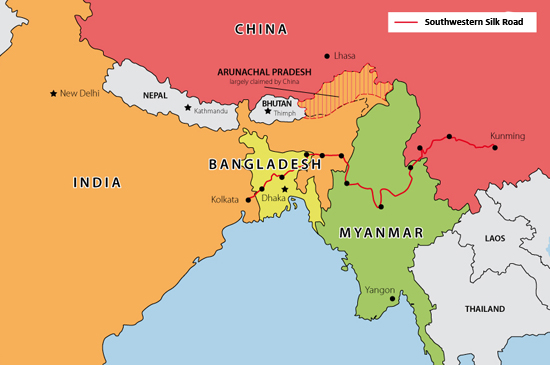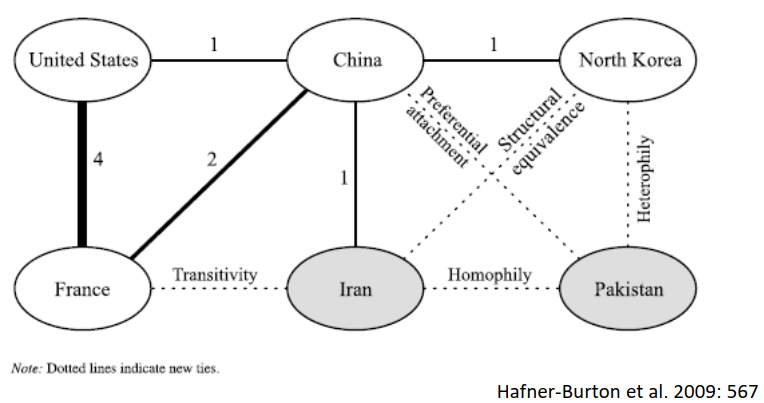Do we have a political term for the situation when a weak country milks from two country which are enemies of each other?
My research includes, studying about debt-trap, and other questions here. So I am thinking if there any terms SIMILAR to "debt-trap" (they aren't same, I know) for this case.
My history is weak and I don't know about any historical examples. I can construct an imaginary example from observations and I might be wrong to make such conclusions. Still I am including it as part of my research.
Research and possible conclusion:
See the map below.
China funds Bangladaesh extensively. Recently turned Capitalist India too does it.
Details and clarity:
https://en.wikipedia.org/wiki/Bangladesh–China_relations
https://en.wikipedia.org/wiki/Bangladesh%E2%80%93India_relations#Development_cooperation
The String of Pearls is a geopolitical theory on potential Chinese intentions in the Indian Ocean region (IOR). The sea lines run through several major maritime choke points such as the Strait of Mandeb, the Strait of Malacca, the Strait of Hormuz, and the Lombok Strait as well as other strategic maritime centres in Pakistan, Sri Lanka, Bangladesh, the Maldives, and Somalia.
Details and clarity: https://en.wikipedia.org/wiki/String_of_Pearls_(Indian_Ocean)
Now, say, Pakistan decides to sell their islands to China, it would not trouble the Indians. Because they are already enemies so are maybe prepared for such a situation.
Details and clarity: https://newscomworld.com/2020/10/06/pakistan-selling-bhundar-bundal-and-dingi-islands-in-occupied-sindh-to-china/
It would be a problem when this imaginary situation occurs:
Bangladaesh needs to develop their coast or port. India wouldn't want to invest because they have to feed their billion people first (They aren't completely Capitalist. They have some socialist policy as well). China is willing to do it under the condition that they may use the port as a naval base. India wouldn't have any way but to invest to keep off the Chinese.
Winner: Bangladaesh!
Losser: China
Bigger Losser: India
Myanmar could be the example too to some extent. My research used Bangladaesh as the example.

